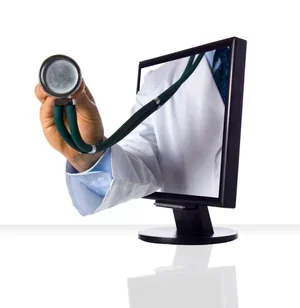
Resources:
Grow in knowledge.

Kaitlyn O’Connor, Esq. joins Nixon Law Group, a leading boutique healthcare law firm
Nixon Law Group, a Virginia-based boutique law firm representing clients in the healthcare industry exclusively, announced today that Kaitlyn O’Connor, Esq. has joined the firm as Counsel. Kaitlyn will be based in Nixon Law Group’s Richmond office, but will divide her time between Richmond and Williamsburg.

Get to Know the New D.C. Telemedicine Regulations
As of December 22, 2017, the District of Columbia’s first telemedicine regulations take effect. Healthcare providers and healthcare technology vendors interested in or currently engaged in the telemedicine industry in D.C. should be aware of these key provisions in the new regulations.

What You Need to Know About the Revised Virginia Assisted Living Regulations: STAFFING (Part 1 of 2)
The revised Virginia assisted living regulations go into effect February 1, 2018. This is the latest summary in Nixon Law Group’s series highlighting key changes under the new regulations. This summary is the first of two that will focus on some of the new staffing requirements, including qualifications, training, and records.

How to get paid for Remote Patient Monitoring with CPT Code 99091
Two Final Rules issued by CMS in November 2017 opened up entirely new avenues for reimbursement of Remote Patient Monitoring services in 2018, creating the potential for better patient outcomes and a boost to a medical practice's bottom line.

What You Need to Know About the Revised Virginia Assisted Living Regulations: Private Duty Personnel and Volunteers
NLG continues its series of posts on certain key changes in the new Virginia assisted living regulations, scheduled to take effect February 1, 2018. In this installment, we review new requirements for the use of private duty personnel and volunteers. Keep reading THE LATEST from Nixon Law Group more information on the new ALF regulations and other healthcare happenings!

What You Need to Know About the Revised Virginia Assisted Living Regulations: Records & Reports
In this third installment of NLG posts summarizing the new Virginia assisted living regulations, we cover notable changes to requirements for Electronic Records and eSignatures, Incident Reporting, and Reports of Abuse, Neglect, or Exploitation. These regulations are scheduled to take effect February 1, 2018, so keep checking back for THE LATEST from Nixon Law Group!

What You Need to Know About the Revised Virginia Assisted Living Regulations: Infection Control
This is the second NLG summary in our series on the revisions to Virginia’s Standards for Licensed Assisted Living Facilities, scheduled to take effect February 1, 2018. The new regulations include changes to the timing for submitting incident reports, a new section addressing electronic records and electronic signatures, substantial revisions to requirements for infection control programs, and changes to the required content of the Disclosure Statement and admission agreements. This summary focuses on changes to Infection Control regulations.

Stuck in the Middle Again: Protected Workplace Recordings Must Coexist with Patient Privacy
Healthcare providers are highly sensitive to the risks introduced by recordings in the workplace—not the least of which are potential violations of federal and state laws regarding the privacy of their patients and residents. We have often advised our healthcare clients to enact restrictions on recordings that could introduce unnecessary risk, but a National Labor Relations Board (NLRB) decision, recently upheld by the U.S. Court of Appeals for the Second Circuit, indicates that those same restrictions on recordings might, in and of themselves, introduce compliance risk. In its decision, the NLRB had to determine whether no-recording policies maintained by employer Whole Foods were overly broad by prohibiting all recordings by Whole Foods employees without prior management approval. The NLRB’s position seems clear: Policies reasonably read as prohibiting all employee workplace recordings violate the National Labor Relations Act.

Nixon Law Group, a leading boutique healthcare law firm, welcomes Caitlin Riccobono, Esq.
VIRGINIA, June 5, 2017/Nixon Law Group, PLLC/- Nixon Law Group, a Virginia-based boutique law firm representing clients in the healthcare industry exclusively, begins Summer 2017 by welcoming Caitlin Riccobono, Esq. as Counsel with the firm. Cait will be based in Nixon Law Group’s Richmond office. Prior to beginning her career as a healthcare lawyer, Cait spent five years in skilled nursing/long-term care facilities as a social worker.

Physician Employment Contracts: The Compensation Package
Before signing an employment contract, it is crucial to understand the details of your compensation package. Often, things are not as straightforward as they may appear, and small details may make a big difference to your take-home bottom line and your lifestyle. Before you sign on the dotted line, consider both the cash and non-cash components and evaluate what is most important to you.

Increase Medical Practice Revenue with Ancillary Services
As physician revenues decline, and medical practices are feeling the pressure of the shift to value-based payment, more physicians are choosing to add ancillary services to their practices to boost revenue. Ancillary services are healthcare services provided by a clinician that are in addition to or complementary to basic medical or surgical services. Examples include medication dispensing, radiography, weight-loss services, in-office diagnostic testing, nutrition counseling, alternative treatments, such as acupuncture and massage, physical therapy, immunotherapy, mental health counseling, urgent care, cosmetic (“med spa”) services, and many more.

Six Things to Watch Out for in Physician Employment Agreements
Healthcare reform and the shift from fee-for-service to value-based reimbursement has brought a host of new complexities to the day-to-day practice of medicine. As a result, more and more physicians are choosing to be employed by a hospital or health system, rather than owning and running their own practice.

Physician's Guide to the New DOL Overtime Pay Law
On May 23, 2016, the Department of Labor passed long-awaited overtime pay rules, modifying the Fair Labor Standards Act (FLSA) for the first time in 12 years. The overtime rules apply to all industries across the country, but will like have a major impact on the healthcare industry, especially independent physician and other clinician employers. The rule significantly increases the amount of money an employee must be paid for that employee to qualify as exempt from the overtime pay rules. This means a much larger pool of employees that now qualify for overtime pay (an additional 4.2 million Americans), and likely significant cost increases for employers. Some healthcare employers will be hit harder than others.

6 Key Things Medical Practices Should Consider When Negotiating Payer Contracts
Learn what kinds of questions you and your medical practice team should be asking when negotiating insurance contracts.
